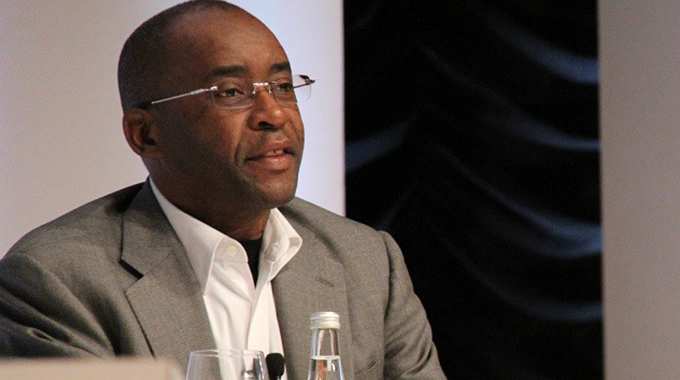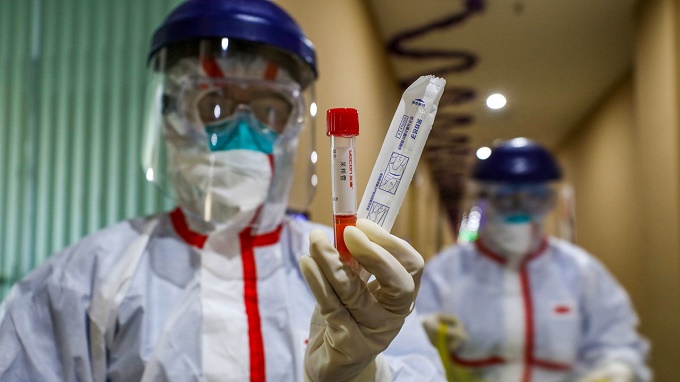Masiyiwa urges collaboration

Business Reporter
ECONET founder, Mr Strive Masiyiwa, has urged Africans to adopt what he calls the ‘ITTIT’ formula to fighting the spread of Covid-19 as governments across the continent gradually ease restrictions imposed to rein-in the disease.
Writing on his Facebook blog on Friday following his appointment by the African Union as a Special Envoy to coordinate the Africa Private Sector Initiative for the procurement of personal protective equipment and other essential supplies, Mr Masiyiwa says the key to stopping the disease is to adopt the formula #ITTIT, which stands for inform, test, trace, isolate and treatment as a collaborative effort among the private sector, NGOs and faith-based organisations.
“We all have to go back to work, if we still have a job, otherwise our families will starve, and our already frail economies will collapse. So how do we stop the rapid spread of the disease, other than by lockdowns?
“For me, to reduce the frequency, duration and necessity of lockdowns, the answer is and has always been as follows: I– Inform; T – Test; T – Trace contacts; I – Isolate; T – Treatment #ITTIT,” he wrote.
Mr Masiyiwa stressed the need to continually inform everyone about the virus, and how easily it spreads. He said particular attention had to be given to informing the most vulnerable groups who face the greatest danger from this disease. “There are a lot of people who believe that the lifting or easing of lockdowns means the danger has gone away. It has not! Until such time as the world finds a cure and/or a vaccine, the danger persists. Remember, accurate information is critical, given the persistent misinformation that goes on, especially through social media platforms,” said the businessman.
On testing he said the ideal would be a test that detects the infection as soon as someone comes into contact with the virus.
“The best we have at the moment is something called a PCR test (polymerase chain reaction test). In an efficient system, it takes about five hours to get the result. In some less efficient systems, it takes up to several days, which means the person could have infected others in those five hours or more,” he said.
“The PCR test is also expensive, and could cost up to $20 if you don’t have the volume buying capacity. The kits are in terribly short supply, and no African country (except South Africa) has been able to secure sufficient volumes to be able to raise its testing game to the level required.”
Mr Masiyiwa said while the Rapid Detection Test (RDT) was less effective, it can give results in just 15 minutes and was less costly, which could still serve purpose of massive testing despite its weaknesses.
“Why not buy RDT test kits in millions, and test as many people as possible? Rwanda for instance, is doing about a 1 000 tests a day (the best after South Africa and Senegal). This is brilliant. I have urged them to go to 10 000 per day,” he said.
“The only way a country can expand testing is to build a broad #TestingAlliance, which includes the private sector, NGOs, business, and faith organisations. As I have said before, we need to demystify #Testing for Covid-19.”
Mr Masiyiwa further suggested that testing should cascade to clinic level under a water-tight process for collecting results quickly, and authenticating the test kits used. In that regard he said Econet group’s Sasai team was already bracing to release a free mobile application, which will help governments and citizens to manage mass testing.
Mr Masiyiwa said massive testing must assist tracking of those infected with Covid-19.
“Once you identify people who have tested positive for Covid-19, they must be isolated in a safe place from others, until the virus is out of their system,” he said.
Mr Masiyiwa made reference to Rwanda again, which has built a national tracing centre, where 600 trained young people are calling people in after they are identified.
“Actually, if a government partners with its mobile operators who have huge 24-hour call centers, the Rwanda system can be duplicated in just one week! Talk to Econet, MTN, Glo, Vodacom, Orange to help with #Tracing! They also have a lot of other cool tech tricks they can deploy for this, which they use when helping the police track stolen phones,” he said.
Accordingly, successful testing and tracing, must lead to finding people who must be isolated and put into a safe and healthy “personal lockdown”, said the businessman.
Given the poor accommodation facilities and overcrowding in most African states, the risk of infection is high among large families. As such governments have been urged to consider working with religious organisations and NGOs to offer the option of self-isolating in groups at churches, mosques, community centres and schools, supported by faith leaders. In Zimbabwe, Mr Masiyiwa said his family foundation has partnered with church leaders to set up 20 such centres in case there is a major outbreak.
Covid-19 has no known treatment yet but some people who get it recover after going through extreme pain and discomfort.
“In Africa, where we have very few hospital beds, we need to be focusing our energy on how we provide home-based care,” said Mr Masiyiwa.
“Providing clean, dry shelter, with blankets and hot nutritious meals, including being prepared to rush to someone’s home with oxygen bottles to help their breathing, is more important than only chasing after ventilators. We must be practical in these situations.
“I am all for training thousands of community health workers, who are volunteers and highly motivated. This is how we dealt with Ebola. South Africa and Rwanda have already unleashed thousands of community health workers.”











Comments